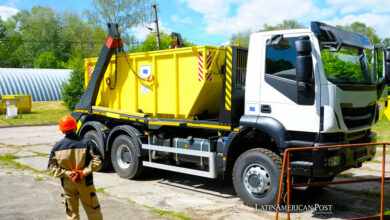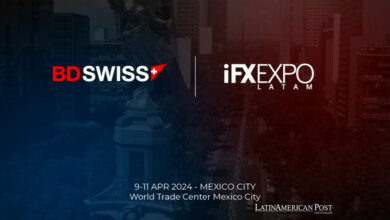Why the post-COVID19 business world needs sustainable CEOs
An article published in The World Economic Forum, brings to the table the profile of the new business leaders in the global context of COVID19 .

Study analysis the importance of sustainable CEOs to face the new reality after the pandemic. / Photo: Pexels
The Woman Post | Maria Lourdes Zimmermann
Escucha este artículo
Leer en español: Por qué el mundo empresarial necesita CEO sostenibles post COVID19
Lise Kingo, Executive Director of the United Nations Global Compact and Clarke Murphy, CEO of Russell Reynolds, a management consulting firm, explain that now and in the future, “successful companies will be those that meet the needs of as many people as possible, use the least amount of resources and get involved and respond to as many stakeholders as possible ”. And they add that: "that is not only the correct thing, it is also intelligent" . Businesses simply cannot prosper in a world of poverty, inequality, unrest, and environmental stress.
In recent years organizations have been changing, some are born with philosophies that aim to be the best companies for the world and not the best in the world and behind that there is nothing more than a model of sustainable economic growth, socially fair and environmentally respectful, aimed at leaving a consistent inheritance for future generations. That is the philosophy of the 'Type B' companies. And like these global models, other companies have included part of those philosophies, but in practice, the gap between rhetoric and reality is still large.
Kingo and Murphy argue that the analysis carried out by the United Nations Global Compact shows that, while 92% of CEOs believe that integrating sustainability will be important for the future success of their businesses, only 48% claim to be implementing sustainability in their operations.
So it follows that despite the expectations of change and the attempts at implementing a fairer model, it is clear that sustainability is not widely integrated in the expectations or culture of the leadership world.
Analysis by Russell Reynolds Associates found that in just 4% of the executive and non-executive function specifications, sustainability experience or mindset was a real requirement. This must be renewed if we want to make the exponential change and innovation necessary to emerge from the COVID-19 crisis stronger and make real progress towards the Sustainable Development Goals.
Also read: Decline in green energy spending might offset COVID-era emissions benefits
The global situation is calling for the renewal of the business and corporate world, the true contribution of leaders who feel the importance of change and its benefits. The post-COVID-19 reality can be maintained over time. Global analyzes of environmental degradation show that this is the beginning of a reality that will continue and its influence touches all areas.
So it is time to select CEOs aware of the importance of business sustainability, but how can those leaders be identified?
Lise Kingo and Clarke Murphy do it in a clear and punctual way thanks to an analysis with 55 pioneers in sustainability issues, who reveal the attributes that transform a leader into a sustainable CEO.
Basically they must have a sustainable mentality with a belief driven by the purpose that business is not a commercial activity divorced from the social and environmental context and to that are added four differentiating leadership attributes:
First, multilevel systems thinking: they incorporate the interaction of business, social, and environmental systems and drive decisions that turn sustainability into a competitive advantage.
A second aspect talks about the influence of stakeholders: the sustainable leader actively includes them in decision making.
The third is disruptive innovation: They have the courage to challenge traditional approaches and cut red tape to drive the disruptive innovation necessary to eliminate the tradeoff between profitability and sustainability.
And finally, as a crucial element, long-term activation: they are not only long-term oriented, they set bold sustainability goals and rigorously drive concerted action in their pursuit.
The characteristics that these new leaders must have are put on the table at a moment of change and human and planetary resilience. Sustainability is not a matter for radical environmentalists, it is a smart economic development model that aims to win and at the same time guarantee future generations that they can also win, increase the quality of life and propose fairer and more respectful development in all domains, because if the global crisis we are undergoing has shown us anything, it is that humanity needs changes.
"CEOs and boards must be ambitious to drive a new vision of leadership," both experts conclude, "and they need to develop and nurture sustainable leaders in their ranks." It is not about hiring a single individual for sustainability. The systemic challenges facing the world today mean that sustainable leadership cannot be limited to a small minority; companies must cultivate sustainable leadership at all levels. This is not something you can expect. It is not a conversation for tomorrow, it is a conversation for today.




